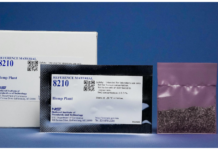The Bank Secrecy Act (BSA) of 1970, also known as the Currency and Foreign Transactions Reporting Act, requires banks and other financial institutions to report cash deposits over $10,000 in order to help the federal government detect and/or prevent money laundering and other financial crimes. Financial institutions are subject to audits by the Office of the Comptroller of the Currency to make sure they are in compliance with BSA reporting and recordkeeping requirements. It is extremely important for plant-touching businesses to understand the BSA and the necessity of being compliant.
As a result of severely limited banking options, some plant-touching businesses operate on a cash-only basis. On occasion, these businesses may receive cash payments over $10,000. Any time a canna-business receives a cash payment over $10,000, it is required to submit Form 8300, Report of Cash Payments Over $10,000 in a Trade or Business, to the Internal Revenue Service either by mail or electronically by the fifteenth day after the cash was received. Electronic submission is the best method for submission, because it provides the business owner with an electronic receipt.
As a plant-touching business owner who deals in cash, there are a few things to note about Form 8300.
Define your cash correctly
It is important to be aware Form 8300 defines “cash” as United States or foreign currency or cash equivalent (money order, cashier’s check, bank draft, or traveler’s check). The $10,000 also can be any combination of payments received within a twelve-month period that is related to the same transaction. Businesses must keep a copy of the completed form in their records for five years after submission.
Provide the right statements
As the recipient of a cash payment over $10,000, businesses also must provide a written or electronic statement to each individual referenced on the forms filed during the year. This statement should be provided to the payee by January 31 of the year after receipt of the cash payment or combination of payments over $10,000. Recipients of large cash payments must collect the required information for the individual or company providing the payment. All records should be detailed and meticulous for compliance and reporting purposes. Business owners who fail to collect all the required information on Form 8300 or submit an incomplete form or no forms at all will be penalized for failing to comply with the reporting requirements.
File Form 8300 accurately
If a plant-touching business fails to file Form 8300 or comply with the reporting requirements, the business owner may be fined $25,000 for each form that was not filed or for failing to comply with the reporting requirements. This includes accurately filling out the form and providing all the required information regarding the payee. If a payee does not provide the information needed to complete the form accurately, the business owner must include a statement in the memo line of the form explaining why the required information was not collected. Failing to comply with the requirements can trigger a BSA audit by the IRS, which potentially can lead to an audit of one or more years’ tax returns.
There is a lot at stake when plant-touching business owners are not knowledgeable about Form 8300, BSA, or the requirements for submitting the form. Unfortunately, it can be difficult for business owners to keep track of and maintain accurate records to make sure the business is compliant. That is why it is important to seek help from a professional who is familiar with Form 8300, understands how to file the form, and knows the annual requirements. With the help of a knowledgeable accountant, business owners can rest assured they remain compliant with BSA, their accounting operation is audit-ready, and their tax savings are maximized.









